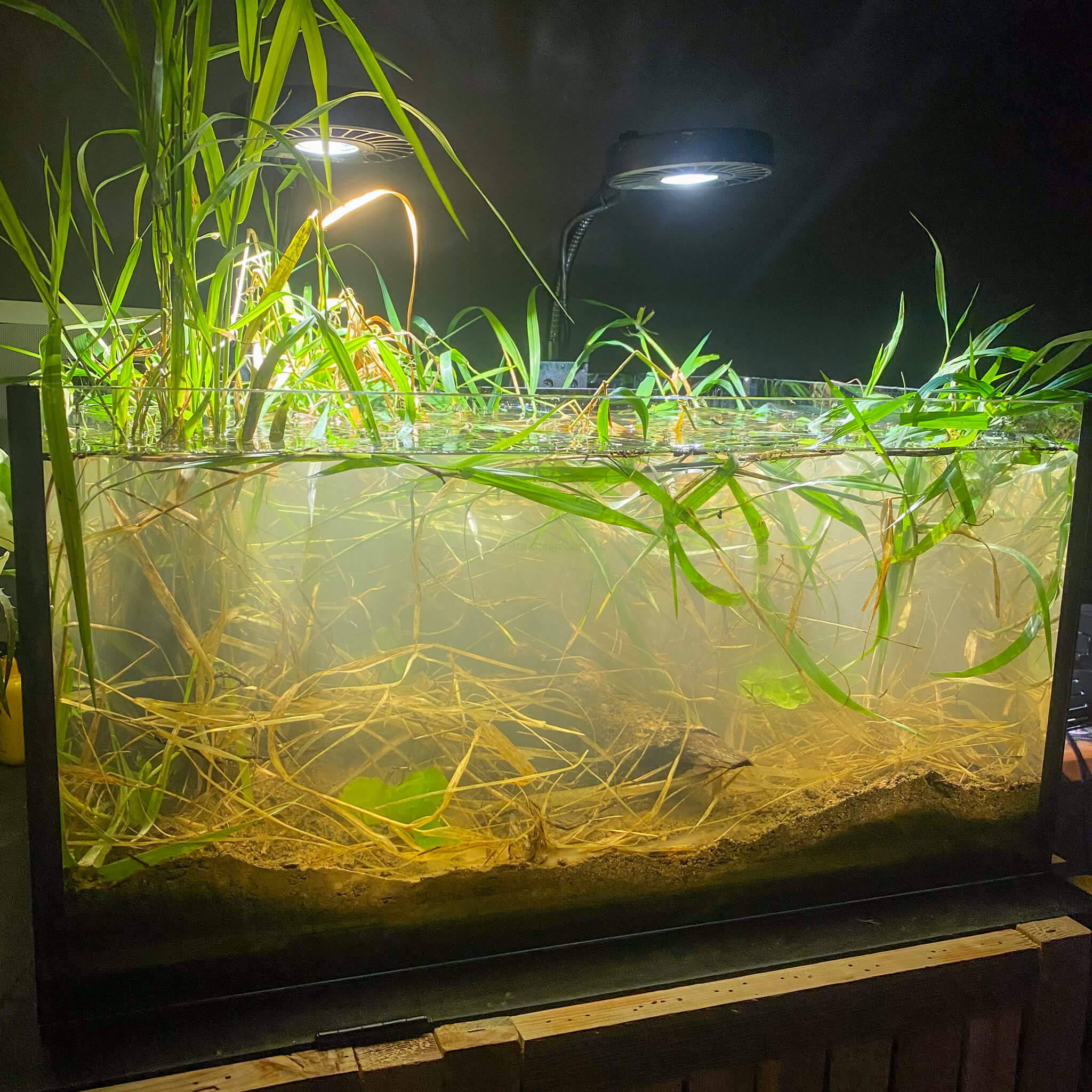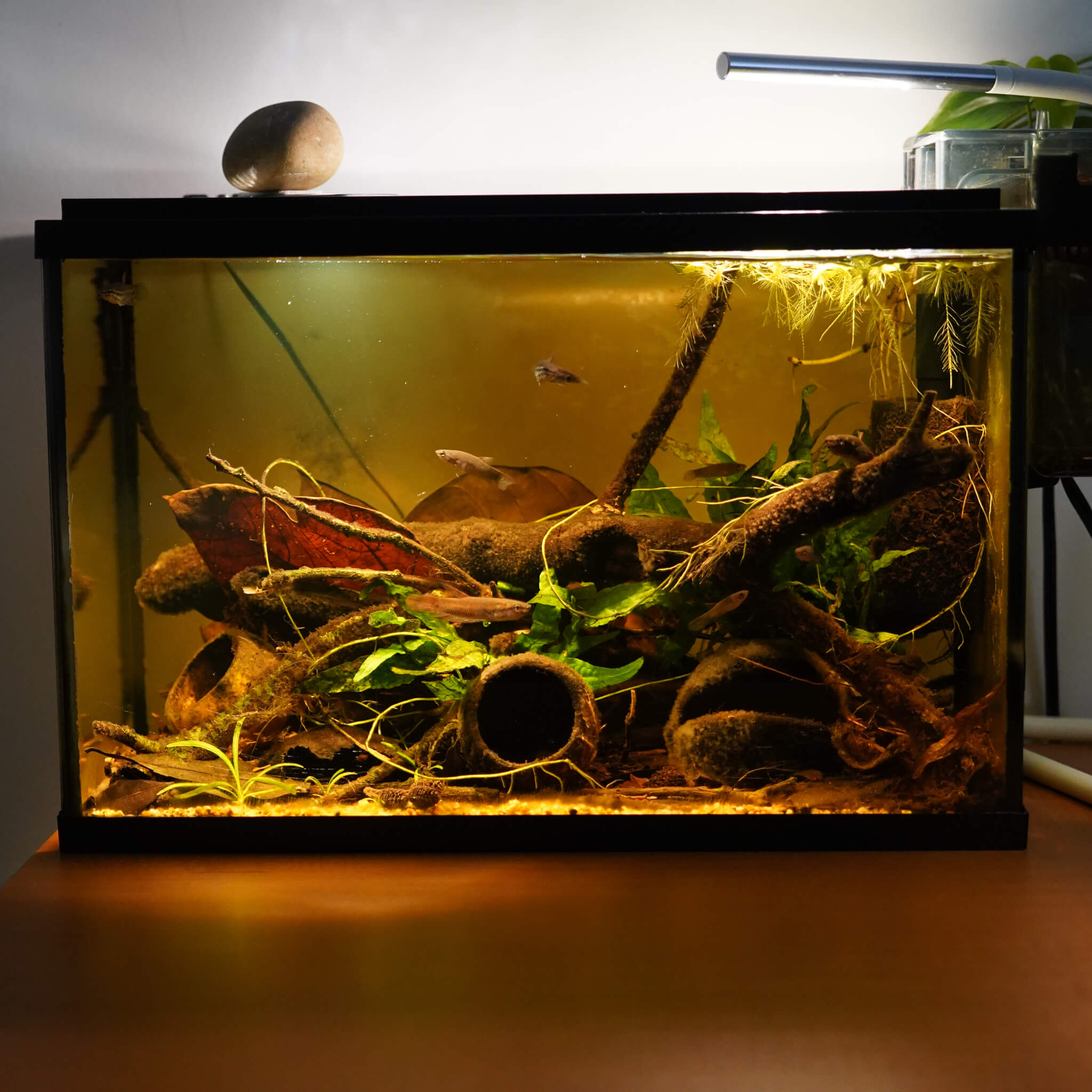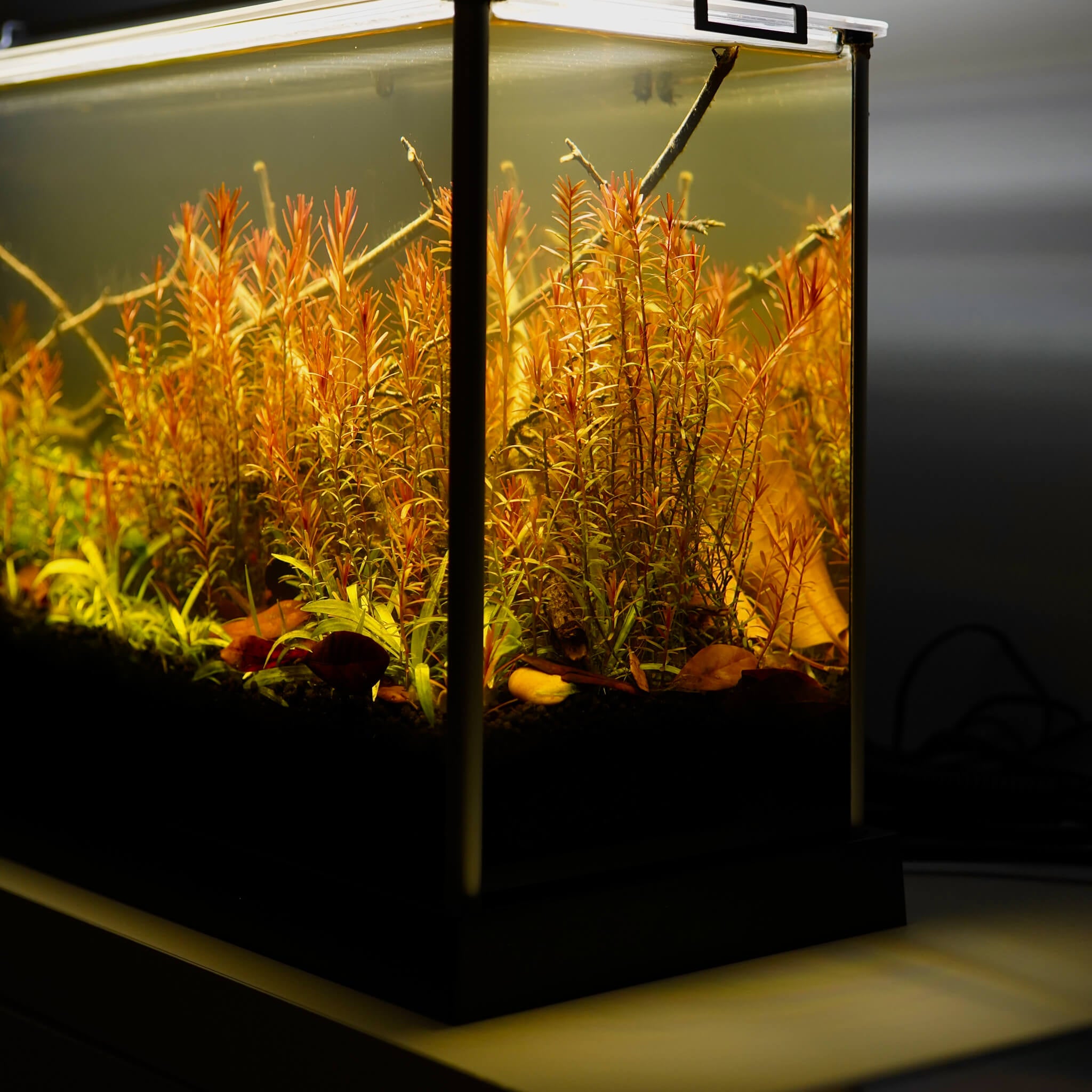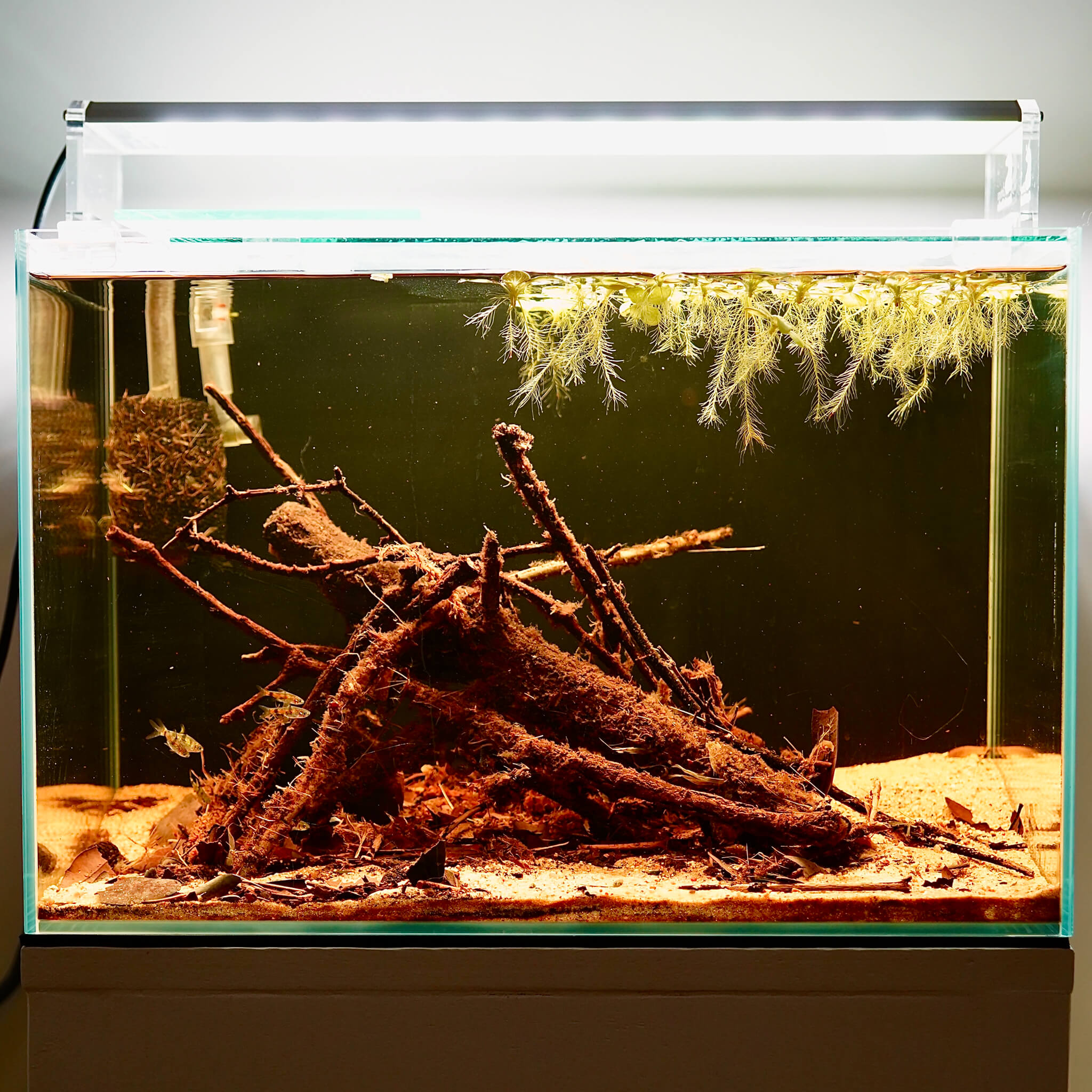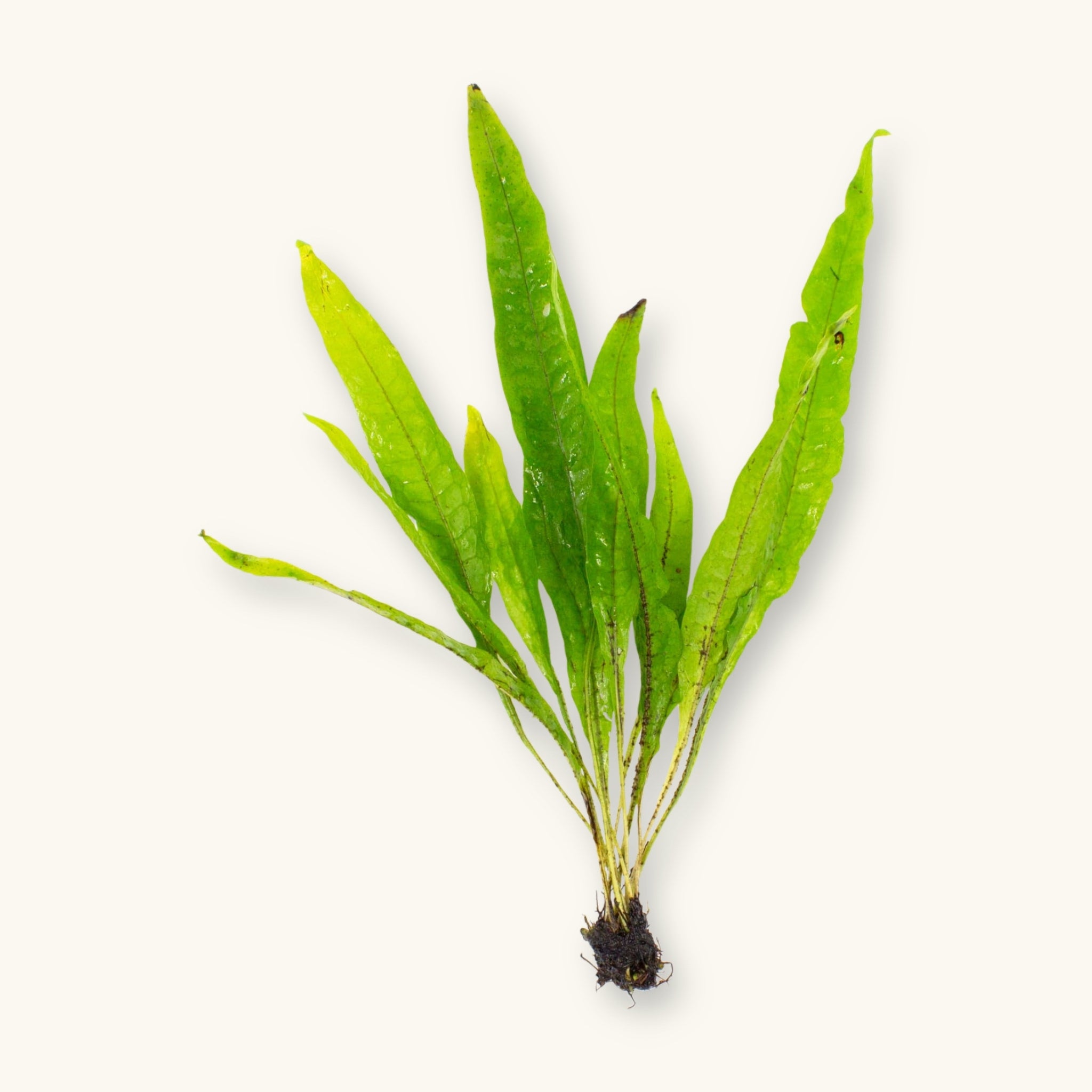
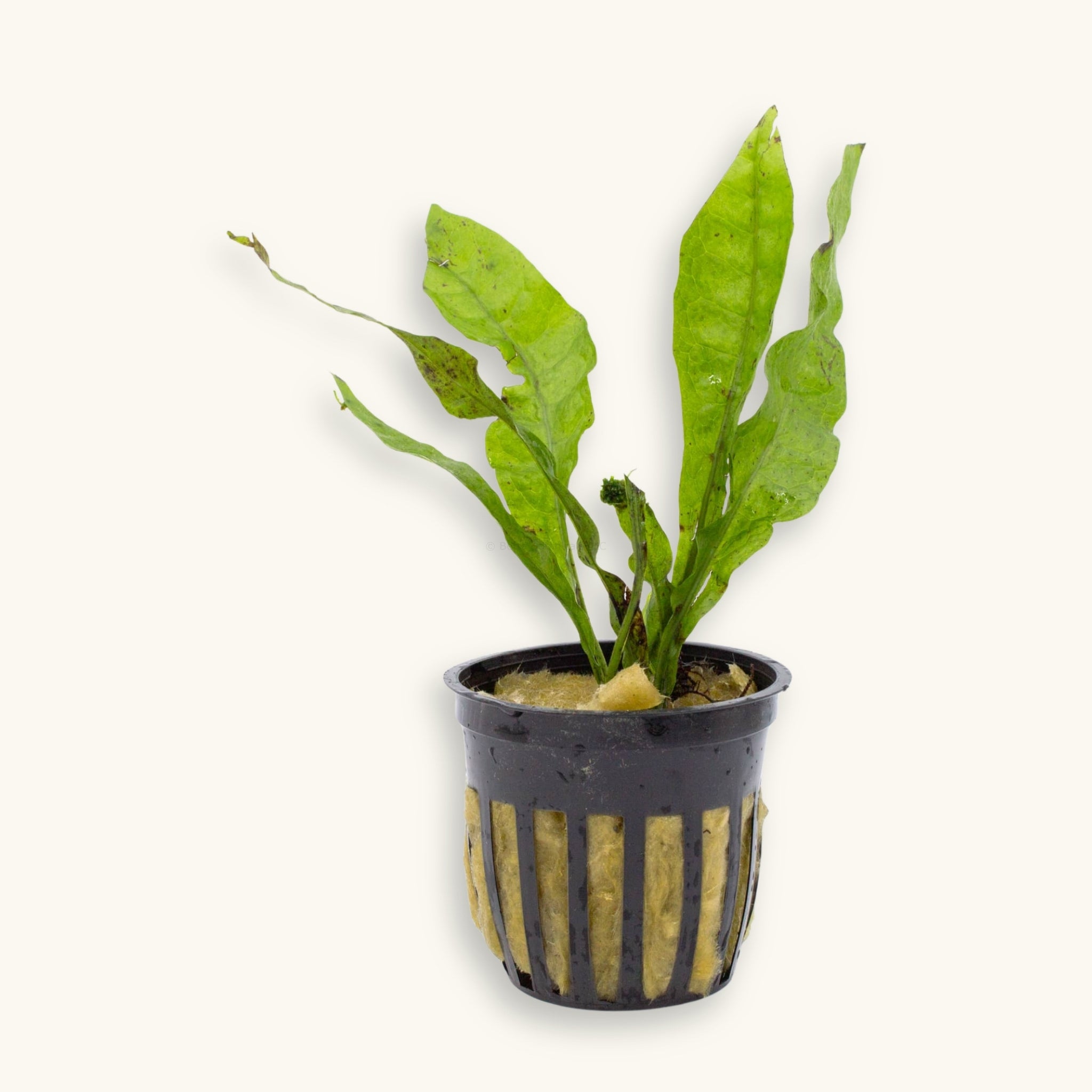
Java Fern | Microsorum pteropus
Java Ferns
Scientific Name: Microsorum pteropus/Leptochilus pteropus
Common Name: Java Fern
Java Ferns are an ideal plant for use in Blackwater, Biotope, and Botanical Method Aquariums, as they are quite forgiving and tolerate a wide range of water parameters. It's a slow-growing rhizome plant that propagates via manually cutting the rhizome or via pups that grow off of the main plant's leaves. They do best affixed to wood or rock, or slightly buried in the substrate. If given the chance, they will grow a very nice carpet on the substrate of your botanical aquarium—paired with crypts, it creates a really nice look! Do not provide this plant with too much light, as its slow growth rate makes it prone to algae growth and accumulation.
Caring for Java Ferns in Blackwater Aquariums
Care Level: Easy
Light: Low
CO2: Unnecessary
Propagation: Splitting of the rhizome or as new plants on the sporangia on the leaves
Tint Tolerance: Low to High, keep in mind that the higher the tint, the slower the growth.
Native Habitat: Malaysia, Thailand, Northeastern India, and parts of South China
All Plants may contain snails or snail eggs. We keep them in all of our tanks for the benefits they provide. Our blackwater aquarium plants are provided by H2OPlants in adherence to their Shipping and DOA Policies. Your curated selection will arrive in their packaging separate from your botanical & merch orders.

Java Fern | Microsorum pteropus
contrast the tint with greenery
While the aesthetic appeal of tinted waters can be quite attractive to us, the recreation of nature—which includes both submerged and emersed plants—is the end goal. Flora helps to improve water conditions, feeding patterns, spawning displays, and territory building.
Aquatic Plant FAQs
DOA Policy
Please ensure that you add a heat pack or cold pack to your orders if temperatures in your area are above 90°F or below 40°F. Click for more info on our DOA Policy.
Are these plants duckweed and snail free?
All Plants may contain snails or snail eggs, small macroinvertebrates, and duckweed. We keep them in all of our tanks for the benefits they provide. We have experienced the presence of small snails, ostracods, daphnia, and beneficial detritus worms.
Are your plants only for tinted water conditions?
Nope! All of our plants will grow perfectly in untinted aquariums that have CO2 and aquasoils, or low-tech planted aquariums. Our selection, though, is optimized for emersed plant growth and low- to medium-tinted water environments.
What is your aquatic plant shipping schedule?
We’re a small company and ship Tuesdays & Thursdays only. Orders placed Wednesday–Sunday → Ship Tuesday. Orders placed Monday–Tuesday → Ship Thursday
Are your plants just for bettas?
Nope. Our aquatic plants are safe for almost all aquariums, terrariums, vivariums, and paludariums. Many of our plants can be grown emersed in filter compartments, vivariums, or incorporated into wabikua.
What are Tannins?
Tannins are natural compounds released by leaves, seed pods, and bark as they decompose in water. They soften water, gently lower pH, and create the characteristic tea-stained tint found in blackwater habitats. But their role goes far beyond color—tannins fuel beneficial bacteria, fungi, and biofilms, which form the foundation of a healthy ecosystem. They also offer mild antifungal benefits and help reduce stress in fish by replicating the natural conditions they’ve evolved in. At their core, tannins are plant-derived antioxidants that connect your aquarium to the same processes at work in wild flooded forests and streams.




